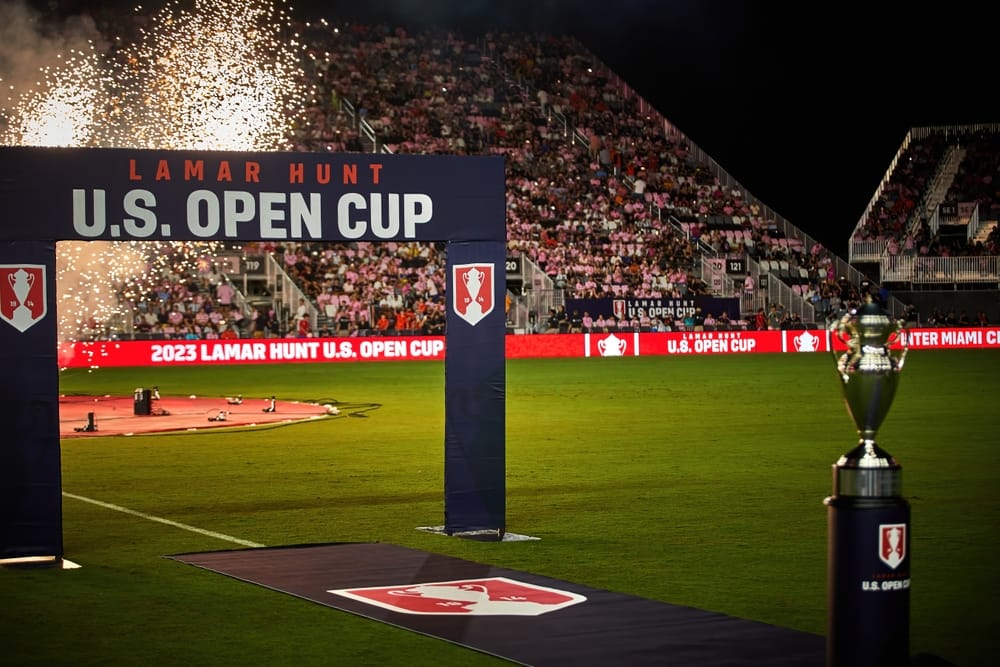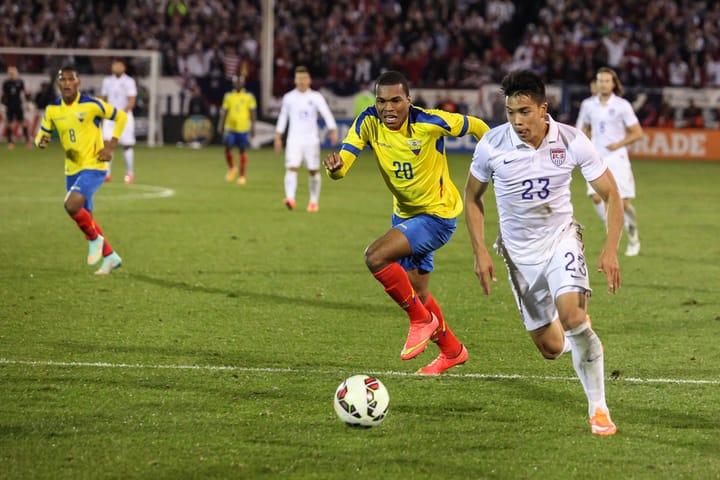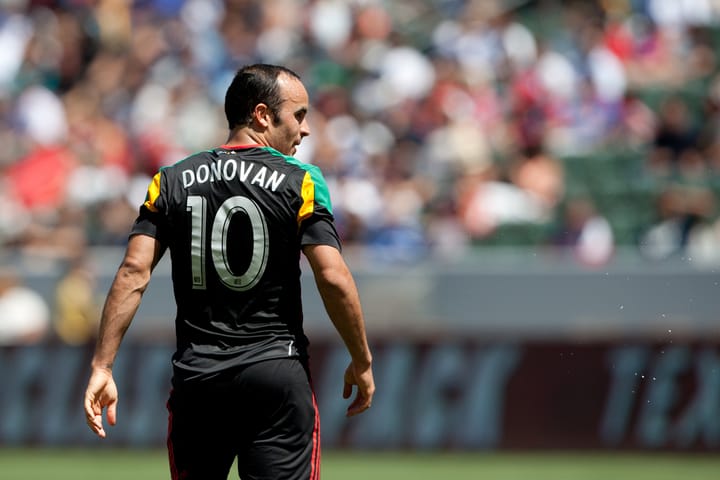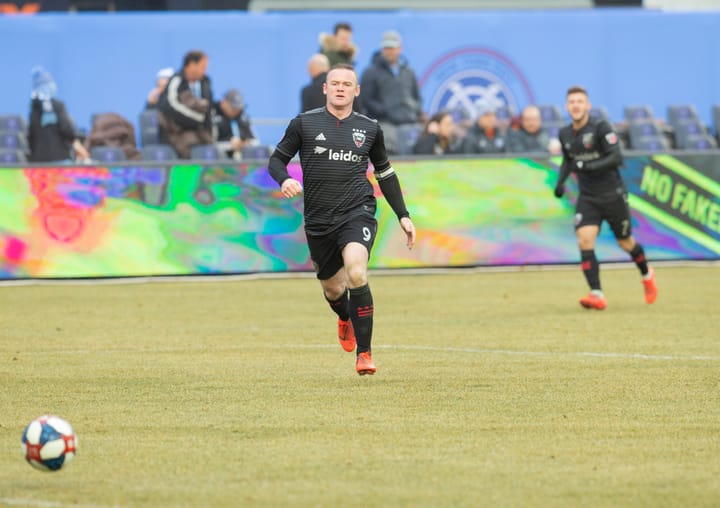Unraveling the Most Coveted Soccer Trophies in USA: A Comprehensive Overview
In this overview we showcase the most important soccer trophies that teams from the USA could win.

This overview aims to unravel the most coveted soccer trophies in the USA, providing readers with a comprehensive look into the accolades that have been the focus of the U.S. Soccer Federation and its teams. In delving into trophies such as the Major League Soccer (MLS) Cup, the CONCACAF Champions League, and the Lamar Hunt U.S. Open Cup, we offer insights into what makes these awards so prestigious and sought-after. Additionally, the exploration extends to the Supporters' Shield and the Canadian Championship, further highlighting the rich tapestry of soccer competitions and accolades in North America. Join us as we explore these symbols of soccer supremacy within the USA and the stories behind them.
Major League Soccer (MLS) Cup
The MLS Cup stands as a pinnacle achievement in the soccer world of the USA and Canada, celebrated for its distinctive design and the intense competition it represents. Recognized alongside the CONCACAF Champions Cup and the US Open Cup as one of the top soccer trophies in the USA, its allure is undeniable. The MLS Cup is not just a trophy; it's a symbol of soccer supremacy, marking the annual championship game of Major League Soccer (MLS) and the culmination of the MLS Cup Playoffs. This high-stakes match pits the Eastern Conference Final winner against the Western Conference Final winner, crowning the victor as the league champion.
Key Highlights of the MLS Cup:
- Inaugural Match: The journey of the MLS Cup began in 1996 with an iconic match between D.C. United and LA Galaxy, setting the stage for future competitions.
- Record Winners: LA Galaxy leads with a record five titles, showcasing their dominance in MLS history.
- Trophy Evolution: The MLS Cup has seen three trophy designs – the original Alan I. Rothenberg Trophy (1996-1998), a redesigned version (1999-2007), and the current Philip F. Anschutz Trophy since 2008.
- Venue Diversity: The final has been hosted in various stadiums across the United States and Canada, reflecting the league's widespread appeal.
- Broadcast Reach: Coverage spans multiple networks including ABC, ESPN, TSN, and Univision, ensuring fans don't miss the action.
The 2023 MLS Cup final, held at Lower.com Field in Columbus, Ohio, featured an exhilarating match between the Columbus Crew and LAFC, with the Crew securing a 2-1 victory. This win marked the second championship title for the Columbus Crew, highlighting the unpredictable nature of the tournament. Darlington Nagbe, a midfielder for the Columbus Crew, was honored as the MLS Cup MVP for his outstanding performance. The victory not only celebrates the Crew's triumph but also qualifies them for the CONCACAF Champions League and the Campeones Cup, further opportunities to shine on the international stage.
In the grand tapestry of soccer trophies in the USA, the MLS Cup embodies the spirit of competition and the relentless pursuit of excellence. Its significance extends beyond the field, affecting the league's structure, attracting international stars like David Beckham and Thierry Henry, and influencing the MLS season's March to December run. The MLS Cup, therefore, is not just about the final match; it's about the journey, the stories of resilience, and the celebration of soccer in North America.
CONCACAF Champions League
Transitioning from the domestic grandeur of the MLS Cup, we delve into the continental prestige of the CONCACAF Champions League, a tournament that crowns the supreme club of North America, Central America, and the Caribbean. This annual competition not only celebrates club excellence but also offers a coveted spot in the FIFA Club World Cup, amplifying its significance on the global stage. The tournament's structure has evolved over the years, transitioning from a combination of group and knockout stages to a purely knockout format, enhancing the intensity and unpredictability of the competition.
Tournament Structure Overview:
- Format Evolution: Initially, from 2008 to 2017, the CONCACAF Champions League featured a group stage followed by knockout rounds. This format saw 24 teams divided into eight groups, with the top teams advancing. However, in a bid to streamline the competition and increase its intensity, since 2018, the tournament adopted a straight knockout format.
- Expansion in 2024: Looking ahead, the 2024 edition is set to expand to include 27 teams, incorporating a wider array of clubs from across the region including Liga MX, MLS, Canadian Premier League, and winners from various cup competitions. This expansion not only increases the tournament's scale but also its inclusivity, allowing a broader representation of soccer excellence across the continent.
- Qualification and Competition Rounds: The qualification criteria are meticulously structured, ensuring representation from various leagues and cup winners, including the U.S. Open Cup, Canadian Championship, and the Leagues Cup. The competition progresses through five rounds, starting with 22 teams in the first round and culminating in a single-match final at a neutral venue, ensuring a high-stakes climax to the tournament.
- View all the goals of the 2023 CONCACAF Champions League
Broadcasting and Coverage:
- Global Reach: The CONCACAF Champions League enjoys extensive coverage through various media partners, ensuring fans across the globe can follow the action. In the USA, matches are available in both English and Spanish through FOX Sports | Tubi and TUDN | ViX, respectively. Additionally, ESPN | Star+ caters to audiences in Central America, the Caribbean, and South America, with the CONCACAF Official Platforms offering coverage in other territories. This wide-ranging broadcast network underscores the tournament's global appeal and the fervent fanbase it commands.
The CONCACAF Champions League stands as a testament to club soccer supremacy across the Americas, offering teams not only the glory of regional dominance but also the opportunity to showcase their prowess on the world stage at the FIFA Club World Cup. With its evolving format and expanding participation, it continues to be a beacon of competitive excellence, uniting clubs, players, and fans in the pursuit of soccer greatness.
Lamar Hunt U.S. Open Cup
The Lamar Hunt U.S. Open Cup, a cornerstone of American soccer, stands as the oldest ongoing national soccer competition in the United States, tracing its origins back to 1914. Known initially as the National Challenge Cup, it was renamed in 1999 to honor Lamar Hunt, an influential figure in American soccer history. This tournament is unique in its inclusivity, welcoming both professional and amateur clubs across the United States, thereby embodying the true spirit of competition and opportunity in the sport.
Key Aspects of the Lamar Hunt U.S. Open Cup:
- Historical Significance: Founded in 1914, the U.S. Open Cup is not only the oldest soccer competition in the USA but also the second-oldest continually-operating cup competition globally. It was initially modeled after England’s FA Cup, aiming to crown a national champion through a knockout format.
- Open to All: The tournament's open format is one of its most defining features, allowing teams from all three professional levels and numerous amateur clubs to compete on an equal footing. This inclusivity offers local amateur teams a rare chance to face off against top-tier professional teams, making for thrilling David vs. Goliath matchups.
- Champions and Dominance: Historically, the competition has seen various teams dominate, with Bethlehem Steel and Fall River Marksmen securing a combined nine titles in the early years. However, since the inception of Major League Soccer (MLS) in 1996, MLS teams have largely dominated the tournament. The Rochester Rhinos remain the last lower division team to win the Open Cup in 1999. The most recent champions are Houston Dynamo FC, showcasing the ongoing competitive nature of the tournament.
The Lamar Hunt U.S. Open Cup's format has evolved over the years, transitioning from a two-leg, home-and-away series to a single-elimination knockout tournament. This change has streamlined the competition, making every match a do-or-die encounter and heightening the drama for teams and fans alike. Despite its rich history and the excitement it generates, the tournament has faced challenges in finding a broad audience beyond existing soccer fans in the USA, with broadcast ratings not reflecting the competition's potential. Nonetheless, the U.S. Open Cup remains a pivotal event in the American soccer calendar, offering a unique blend of tradition, competition, and the dream of glory for teams across the nation's soccer landscape.
Supporters' Shield
The Supporters' Shield represents a unique accolade within Major League Soccer (MLS), distinguishing itself by rewarding the team with the highest point tally during the regular season. Unlike the MLS Cup, which is decided through playoff victories, the Supporters' Shield is a testament to consistent performance across the entirety of the season. This award has been a fixture in the league since 1999, with D.C. United and LA Galaxy each clinching the shield four times, showcasing their dominance in the regular season. The 2023 season saw FC Cincinnati claim the Supporters' Shield for the first time, marking a significant achievement in the club's history.
Key Points about the Supporters' Shield:
- Creation and Purpose: The Supporters' Shield was conceived by fans in 1997 and realized through the efforts of Sam Pierron and his group, symbolizing the active involvement of the fan community in the league. This initiative underscores the Shield's role in giving clubs prestige and a tangible symbol of their regular-season success.
- Historical Context: Initially, the Shield was to include the Italian word 'Scudetto', a plan that was later altered. The trophy, named by Nick Lawrus in 1997 and crafted by Paula Richardson from sterling silver sheet metal, was first presented to LA Galaxy in 1999. The design and funding of the Shield, supported by ESPN broadcaster Phil Schoen and MLS commissioner Doug Logan, reflect the community-driven spirit of this award.
The Supporters' Shield not only secures a club's prestige but also guarantees the overall No. 1 seed and home-field advantage throughout the Audi MLS Cup Playoffs. FC Cincinnati's remarkable achievement in 2023, securing the trophy with 65 points - the most points ever earned in the shortest time (31 games) - underscores the competitive nature of the league. The club's resurgence, spearheaded by the hirings of general manager Chris Albright and head coach Pat Noonan, culminated in a season that not only brought them their first major trophy in MLS but also positioned them to potentially set a new all-time MLS single-season points record. FC Cincinnati's success story in 2023 serves as a testament to the significance of the Supporters' Shield in representing team success through an entire season, making it one of the most coveted soccer trophies in the USA.
Leagues Cup
The Leagues Cup is a brand new professional soccer tournament featuring clubs from Major League Soccer (MLS) in the United States and Liga MX in Mexico. It was created as a collaboration between MLS and Liga MX, two of the most prominent soccer leagues in North America, with the aim of promoting interleague competition and enhancing the profile of soccer in the region and it started in 2023.
Format: The tournament typically features a knockout format with clubs from MLS and Liga MX competing against each other. The exact format may vary from year to year, but it generally consists of multiple rounds leading up to the final.
Participating Teams: The participating teams are usually selected based on their performance in their respective leagues. In MLS, teams may qualify based on their standings in the previous season's MLS regular season or through other qualification mechanisms. In Liga MX, teams are typically invited based on their performance in the Liga MX Clausura and Apertura tournaments.
Matches: Matches are played at various venues in the United States and Mexico, allowing fans from both countries to experience the tournament firsthand. The matches are often held during the MLS and Liga MX offseasons to avoid conflicting with regular league fixtures.
Prize Money and Prestige: While the Leagues Cup doesn't have the same level of prestige as major international tournaments like the CONCACAF Champions League or the FIFA Club World Cup, winning the tournament still carries significance for participating clubs. Additionally, prize money is awarded to the winning team, adding further incentive for success.
Canadian Championship
The Canadian Championship, often hailed as the Battle of the North, is Canada's premier annual knockout soccer tournament, pivotal in the landscape of soccer trophies in the USA and Canada. Organized by the Canadian Soccer Association, it encompasses a diverse range of teams, including those from Major League Soccer (MLS), Canadian Premier League (CPL), League1 Ontario, League1 British Columbia, and Ligue1 Québec. This inclusivity underscores the tournament's commitment to showcasing the breadth of Canadian soccer talent across various levels of play.
Format and Participation:
- Annual Knockout Structure: The tournament employs a double-leg aggregate score knockout format, ensuring a thrilling series of matches where every goal counts.
- Expanding Teams: The 2023 iteration featured 14 teams, marking the inclusion of League1 British Columbia winners and the newly formed Vancouver FC from the CPL, highlighting the tournament's growth and the increasing competitiveness within Canadian soccer.
Key Features and Rules:
- Canadian Content: A distinctive rule mandates that each team must start with at least three eligible Canadian Internationals, emphasizing the development and visibility of Canadian players.
- Roster Regulations: Teams can nominate up to 30 players for their championship roster, with only 18 being eligible for any particular match. This rule, alongside the allowance for up to six Canadian academy players to be called up, fosters a nurturing environment for young talent.
- Substitution and "Cup Tied" Rules: A maximum of five substitutions are allowed per match, and once a player appears for a club, they are "cup tied" to that club for the remainder of the tournament, adding strategic depth to team management.
The Canadian Championship not only serves as a platform for domestic clubs to vie for the prestigious Voyageurs Cup but also emphasizes the nurturing of Canadian talent and the celebration of soccer in the country. The tournament's structure, from its broad team inclusion to its specific rules on player eligibility and substitutions, showcases a well-considered approach to fostering competitive integrity and development within Canadian soccer. With the George Gross Memorial Trophy awarded to the Most Valuable Player and the Toyota Best Young Canadian Player Award recognizing emerging talent, the Canadian Championship stands as a beacon of opportunity and achievement in North American soccer.
As we conclude, it's evident that these distinguished awards signify more than victories on the field; they are markers of soccer's evolving journey in North America, reflecting the growth, passion, and vibrant diversity within the sport. The broader implications of these trophies extend to fostering international recognition, enhancing player development, and promoting a deeper appreciation for soccer across the continent. While this overview has provided a comprehensive look at these prestigious accolades, the stories they engender highlight soccer's ongoing narrative — one of ambition, resilience, and community. As the sport continues to flourish, these trophies will remain emblematic of soccer's enduring spirit and the unyielding pursuit of greatness that defines it.




